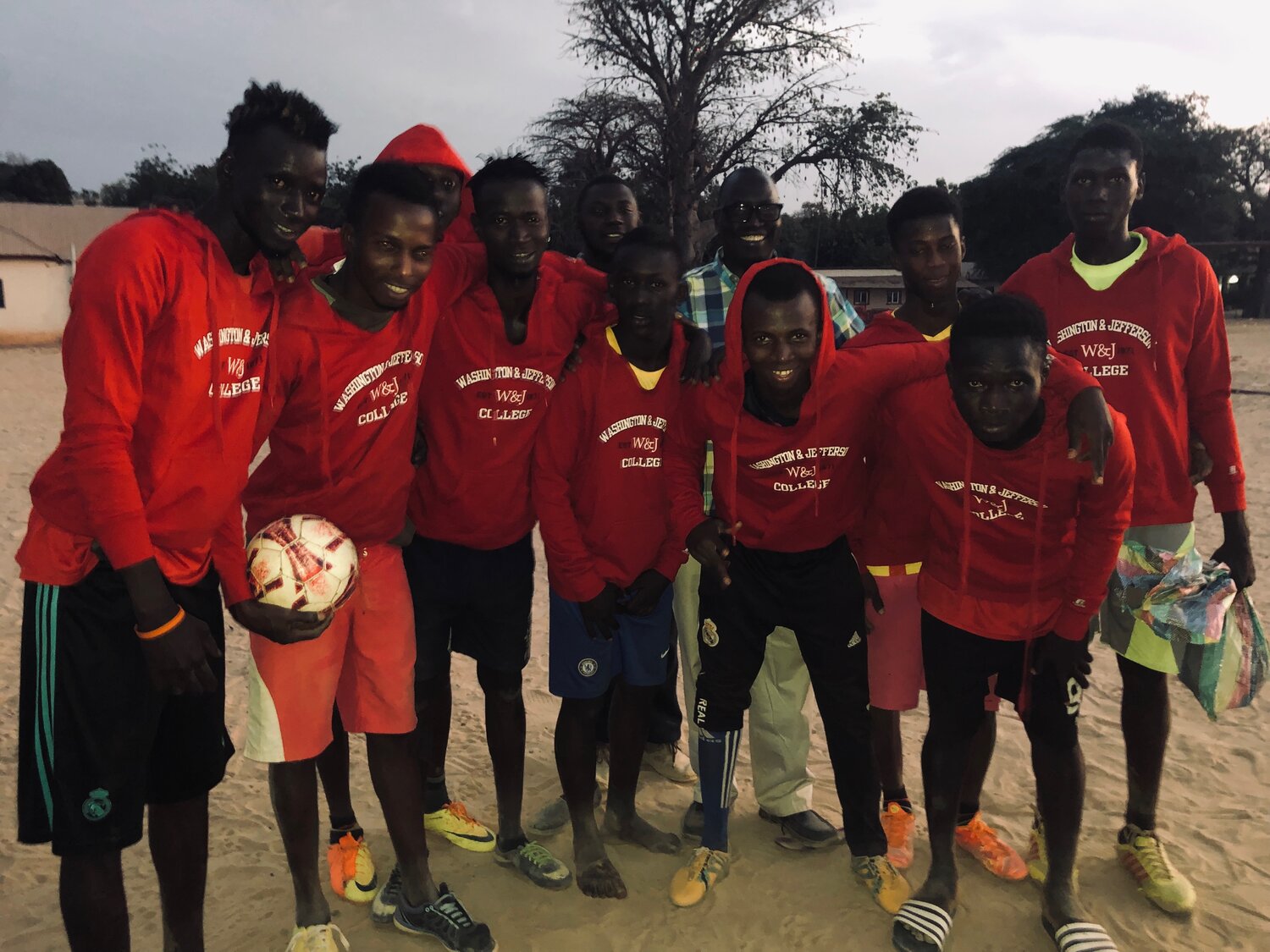Written by Nick Krugh
It is important that we, as humans, know what we can do to help our planet and it is important to use Earth Day to educate ourselves on ways that we can do this. I’m writing to inform young athletes how important it is to donate used sporting equipment. Everyone knows that old clothes can be reused but so can old sporting equipment. As an athlete, I constantly see perfectly good jerseys go to waste because teams upgrade and the outdated jerseys sit in closets or storage units. The same goes for tennis shoes, cleats, balls, and other sports gear. Instead of letting these resources go to waste, athletes should consider donating them. Not only does this benefit people in need, it is more sustainable for our Earth.
Specifically, I want to talk about an opportunity we have at W&J to donate to a great cause. Dr. Buba Misawa, professor and chair of Political Science and Director of International Studies, regularly travels to and from Africa. He frequents Senegal, Nigeria, and the Gambia in West Africa. Every visit he makes, he takes clothes, shoes, and other essential supplies that he collected on campus. The donations are equally sent to other African countries in the region as well.

Donating clothes is important because it helps satisfy the basic human needs of those who are less fortunate. Having appropriate and new clothing does more than physically protect the body: it helps children and adults maintain their personality and dignity. Dr. Misawa explained, “The impact is first felt in the transformation of the communities in their own self perception as visible in appearance, recognition, personality, and acceptance in public space of the many ceremonies and functions held by each community.”
Children in impoverished areas in Africa commonly don’t have the opportunity to play on organized sports teams. Furthermore, sports jerseys and equipment are highly cherished and make a large impact on children and young adults’ lives. Sports are commonly played bare-foot, so shoes, and especially cleats, are extremely appreciated and bring joy to any kid who gets a pair. Importantly, donated jerseys are commonly accepted as appropriate school uniforms. In many African communities, an appropriate school uniform is required for children to go to school. Many children do not receive a proper education because they lack the necessary clothes. Sports uniforms double as an educational lifeline.
In addition, recycling shoes and clothes is practical through effective use. In impoverished areas, clothing and shoes are used down to the last thread, making them easily biodegradable by the end of their lifespan. One piece of clothing or one pair of shoes is commonly used by several people interchangeably. This is sustainable as it leads to maximum use of the item and provides direct benefits to the Earth.
Perhaps, one of the most important aspects of donations is the long term effect it can have on a community. Dr. Misawa explained the value of donations, “perhaps, most important, is that the gesture of support from others (donors), is very impact-full in form of community appreciation of donors, encouragement of community efforts and mobilization, and the promotion of development projects and initiatives.”

If we all can find a way to give to those less fortunate, we can make a sizable difference together. Used sports equipment and clothing is my niche because I’m an athlete, but any donation counts! By reusing clothes you not only help those who need it most but also do a small part in preserving our planet. Dr. Misawa expresses interest in all types of donations, “As it is now, the needs and requests in these countries are enormous and overwhelming, so I take all kinds of donations without limits, including funds for the shipping costs.”
If you have donations or would like to know more about Dr. Misawa’s efforts, he can be contacted at bmisawa@washjeff.edu and by phone at 724-223-6184.

